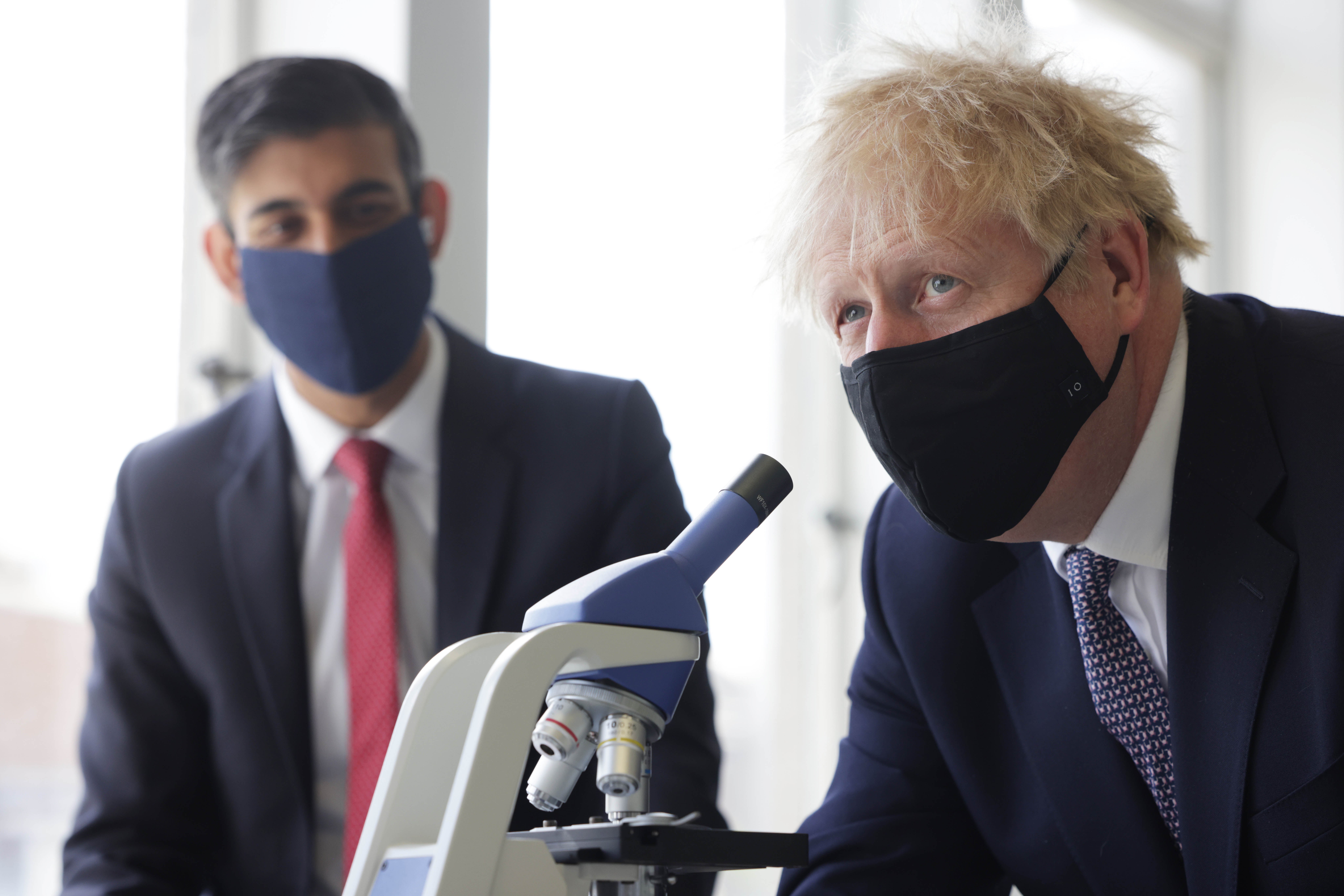Invest in unlisted British firms, PM and Chancellor tell pension funds
Pension funds invest most of their money in public companies and other listed securities

Your support helps us to tell the story
From reproductive rights to climate change to Big Tech, The Independent is on the ground when the story is developing. Whether it's investigating the financials of Elon Musk's pro-Trump PAC or producing our latest documentary, 'The A Word', which shines a light on the American women fighting for reproductive rights, we know how important it is to parse out the facts from the messaging.
At such a critical moment in US history, we need reporters on the ground. Your donation allows us to keep sending journalists to speak to both sides of the story.
The Independent is trusted by Americans across the entire political spectrum. And unlike many other quality news outlets, we choose not to lock Americans out of our reporting and analysis with paywalls. We believe quality journalism should be available to everyone, paid for by those who can afford it.
Your support makes all the difference.The Prime Minister has called on the UK’s pension funds and other investors to back British companies that need money to grow.
Boris Johnson and Chancellor Rishi Sunak asked big institutional investors to consider long-term investments in UK assets to help the economy rebound following the pandemic.
“We recognise the responsibility of the Government to remove obstacles and costs to making long-term, illiquid investments in the UK,” they wrote in a letter to the funds.
“The Government is doing everything possible – short of mandating more investment in these areas as some have advocated – to encourage a change in mindset and behaviour among institutional investors, and we remain open to addressing further barriers where they are identified.”
We need an investment big bang
Pension funds hold billions of pounds for their members, but 80% of their money is in listed securities – such as shares traded on the London Stock Exchange.
Yet listed securities only make up 20% of UK assets, Mr Johnson and Mr Sunak said.
“UK institutional investors are under-represented in owning UK assets,” they wrote.
“We are challenging you this summer to begin to invest more in long-term UK assets, giving pension savers access to better returns and enabling them to see their funds support an innovative, healthier, greener future for their country.
“We know that this will require a change in mindset for many investors that won’t happen overnight, but that is why this change needs to start now.”
Investors can make high returns on their money by putting cash into start-up companies and other innovators in the economy that are not listed on a public exchange.
However these investments can often be difficult to sell.
In 2019, the Woodford Equity Income Fund, run by superstar fund manager Neil Woodford had to be suspended after Mr Woodford invested too much of the fund’s money in illiquid assets.
Mr Woodford allowed his clients to take their cash out of the fund whenever they wanted, but he was unable to honour this largely because much of the money was tied up in these hard-to-sell assets.
However pension funds do not allow their members to withdraw cash at any time, which provides more protection against the kind of surge in withdrawals which troubled the Woodford fund.
Mr Johnson and Mr Sunak said that ministers would explain more about their plans in the coming weeks.
They said: “We need an investment big bang, to unlock the hundreds of billions of pounds sitting in UK institutional investors and use it to drive the UK’s recovery.”